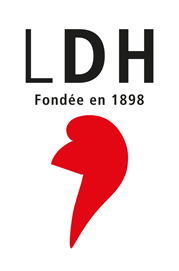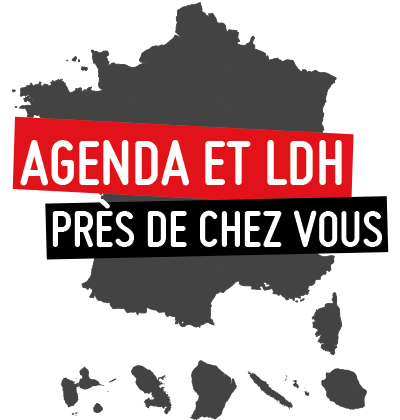Lettre collective envoyée à la Fédération internationale de l’automobile (FIA)
28/02/2023
Dear Mohammed Ben Sulayem,
We, the undersigned organizations, write to draw your attention to the case of detained Bahraini-Danish, award-winning, human rights defender Abdulhadi al-Khawaja. In light of the approaching date of the Formula 1 (F1) Grand Prix in Bahrain, we deem it necessary to inform you about the country’s inhumane treatment of human rights defenders and the worrying situation of Mr. Al-Khawaja.
Since the violent crackdown on the peaceful pro-democracy protests in 2011, the Kingdom of Bahrain has increasingly turned into a police state where activists and civil society actors can no longer freely voice their opinions. It is in the wake of these protests that Mr. Al-Khawaja was arrested and sentenced to life in prison on baseless terrorism-related charges and for allegedly receiving funding from foreign terrorist groups. These charges were proven to be unfounded, since the Bahrain Independent Commission of Inquiry (BICI) ruled out in 2011 any foreign involvement in the pro-democracy protests. Similarly, the United Nations Working Group on Arbitrary Detention, concluded in 2012 that Mr. Al-Khawaja’s arrest was arbitrary, as it resulted from him exercising his rights to freedom of expression, association and peaceful assembly.
Since 2011, Mr. Al-Khawaja remains imprisoned at Jau Prison. Throughout his incarceration, he has been subjected to various forms of abuse. These include torture, beatings, verbal abuse, threats of sexual assault and long periods of solitary confinement. The severe physical torture he suffered forced him to undergo medical surgery multiple times and to experience acute chronic pain, especially in his back and head. He has protested his arbitrary detention conditions and other forms of reprisals by conducting six hunger strikes, which have taken a serious toll on his health. Mr. Al-Khawaja is currently being denied adequate medical attention, which causes him to suffer from severe medical complications caused by the mistreatment in detention. Mr. Al-Khawaja is also banned from receiving in-person visits from his family.
Mr. Al-Khawaja is just one among the many detained political prisoners in Bahrain. In this context, we consider the hosting of such a prestigious international competition like the F1 Grand Prix in a country where individuals are jailed for expressing their opinions to be highly controversial.
The Bahraini Government continues to attach great importance to the Bahrain Grand Prix and to link it with its progressive discourse and façade reforms. In this regard, the government has proved it will resort to any measures, including crackdowns on freedom of expression through arbitrary arrests, torture and violence that amounts to murder against critics, to maintain its international prestige. We underline the fact that ‘sports washing’ has been one of the Bahraini government’s most significant tool used in an almost two-decade strategy to cover up the political and human rights situation in the country, and Formula 1 Grand Prix has been an immense help for them in improving their tarnished image by gaining more positive attention, especially in the West.
It is with profound disappointment that we realize the FIA only accepts the portrayal of the political situation in the country provided by Bahraini authorities, fending off the countless independent evaluations presenting the actual political realities of Bahrain. Moreover, the ‘no politics’ policy introduced by the revisions made to the International Sporting Code, is nothing but a clampdown on the freedom of expression of drivers. Such a decision equals turning a blind eye on the dire situation of human rights in Bahrain.
While the FIA was swift in condemning Russia’s invasion of Ukraine, resulting in Russia’s contract with F1 being withdrawn, it is rather startling to witness FIA’s failure to condemn human rights violations in Bahrain and the maintaining of the long-lasting contract between F1 and the country.
We finally want to emphasize the fact that business relationships, especially in countries with poor human rights records, should be conducted following the United Nations Guiding Principles on Business and Human Rights and OECD Due Diligence Guidelines. This is also reinforced by the 2016 UN Human Rights Council Resolution, calling upon businesses to be aware of the important role they play in protecting civic freedoms and to act accordingly.
As the 2023 Bahrain Grand Prix will take place shortly, we suggest F1 and the FIA to take immediate action to address the degrading human rights situation in Bahrain and Mr. Al-Khawaja’s case by:
- use your leverage to conditionalize existing and future business relations with Bahrain’s companies and institutions upon the immediate and unconditional release of Abdulhadi al-Khawaja ;
- develop and implement a human rights due diligence policy in relation to the events and commercial activities with hosting countries, taking into consideration independent evaluations of the situation in the country ;
- respect the freedom of expression of drivers in the case they publicly address the issue of Al-Khawaja, other imprisoned human rights defenders or the overall human rights situation in Bahrain.
Sincerely,
European Centre for Democracy and Human Rights (ECDHR) / Avocats Sans Frontières France (ASF France) / Protection International / FIDH (International Federation for Human Rights), within the framework of the Observatory for the Protection of Human Rights Defenders / World Organisation Against Torture (OMCT), within the framework of the Observatory for the Protection of Human Rights Defenders / LDH (Ligue des droits de l’Homme) / The Center for Advocacy and Human Rights (CADO) / Martin Ennals Award for Human Rights Defenders
Communiqué de l’European Centre for Democracy and Human Rights (ECDHR)
L’European Centre for Democracy and Human Rights (ECDHR) annonce le lancement de sa campagne “We race for freedom” qui vise à plaider pour la libération du militant des droits de l’Homme Bahraino-Danois primé, Abdulhadi al-Khawaja, emprisonné à Bahreïn depuis 2011.
A la suite des manifestations pacifiques pro-démocratie en 2011, connu sous le nom des Printemps Arabes, Abdulhadi al-Khawaja a été arbitrairement détenu par les autorités bahreïnies et condamné à la prison à vie sur la base d’accusations sans fondement liées au terrorisme et pour avoir prétendument reçu des fonds de groupes terroristes étrangers. Il est une figure emblématique parmi les nombreux prisonniers détenus, par le gouvernement bahreïni, sur la base d’accusations politiquement motivées ou fabriquées, dans le cadre de la stratégie du Royaume visant à faire taire toute voix critique.
En dépit de l’énorme tollé international, des organisations de défense des droits de l’Homme, des députés européens, de nombreux fonctionnaires européens et des titulaires de mandat au titre des procédures spéciales de l’ONU qui ont demandé sa libération au cours des 12 dernières années, Mr. Al-Khawaja est toujours emprisonné à la prison de Jau. Tout au long de son incarcération, il a été soumis à la torture, aux coups, aux abus verbaux, aux menaces d’agression sexuelle ainsi qu’à de longues périodes d’isolement. Il a protesté contre ses terribles conditions de détention et a mené d’autres formes de représailles en menant six grèves de la faim, qui ont eu de graves répercussions sur sa santé. Mr. Al-Khawaja est actuellement privé d’une attention médicale adéquate, ce qui lui vaut de souffrir de graves complications médicales.
Mr. al-Khawaja n’a également pas le droit de recevoir des visites de ses proches. Les autorités bahreïnies privent de plus en plus de détenus célèbres de soins médicaux, de visites familiales et d’accès à l’économat de la prison pour les punir de leur activisme.
Le gouvernement de Bahreïn continue de harceler judiciairement M. Al-Khawaja. En novembre 2022, il a été condamné par contumace pour deux autres chefs d’accusation, l’un pour avoir cassé une chaise et l’autre pour avoir insulté un gardien de prison. La cour d’appel bahreïnienne, toujours en l’absence de M. al-Khawaja, s’est récemment prononcée contre son droit de faire appel de ces deux condamnations.
Au nom de l’ECDHR, nous avons lancé cette campagne dans le but de faire pression sur le gouvernement bahreïni pour qu’il libère immédiatement et sans condition Mr. Abdulhadi Al-Khawaja. Nous sommes profondément préoccupés par le fait que le gouvernement de Bahreïn exploite une fois de plus le Grand Prix de Formule 1 pour dissimuler la situation politique et des droits de l’Homme alarmante dans le pays, le « sportswashing » étant l’un des outils les plus importants de la monarchie à cette fin. Le sportswashing consiste à organiser d’importants tournois sportifs afin de donner une image positive et moderne au monde entier de pays dont le bilan en matière de droits de l’Homme est médiocre. Cette image agit comme une façade qui couvre les horribles réalités de ces pays. Nous l’avons vu dans le cas de la Coupe du monde 2022 au Qatar, qui a dissimulé la discrimination à l’égard des femmes et de la communauté LGTBQI+, ainsi que de graves violations des droits des travailleurs migrants dans le cadre du système de la kafala.
De plus, le gouvernement bahreïni continue d’accorder une grande importance au Grand Prix de Bahreïn et de l’associer à son discours progressiste et à ses réformes de façade. À cet égard, le gouvernement a prouvé qu’il était prêt à recourir à toutes les mesures, y compris la répression de la liberté d’expression par des arrestations arbitraires, des actes de torture et des violences assimilables à des meurtres à l’encontre des critiques, pour maintenir son prestige international.
La campagne “We Race for Freedom” comprend des activités de plaidoyer avec l’organe directeur de la Fédération internationale de l’automobile, les pilotes de Formule 1 et de la diplomatie, en collaboration avec d’autres organisations non gouvernementales, ainsi que des activités sur les réseaux sociaux.
Unis, nous ferons pression sur les autorités bahreïnies pour qu’elles mettent fin à l’emprisonnement injustifié d’Abdulhadi al-Khawaja et le libèrent immédiatement et sans condition.
Pour plus d’informations ou pour organiser une interview, veuillez nous contacter à l’adresse bahrain.advocacy@ecdhr.org.
Consultez notre compte Twitter @ECDHRbxl pour des mises à jour sur la campagne et le cas de M. Al-Khawaja.
Le 28 février 2023


